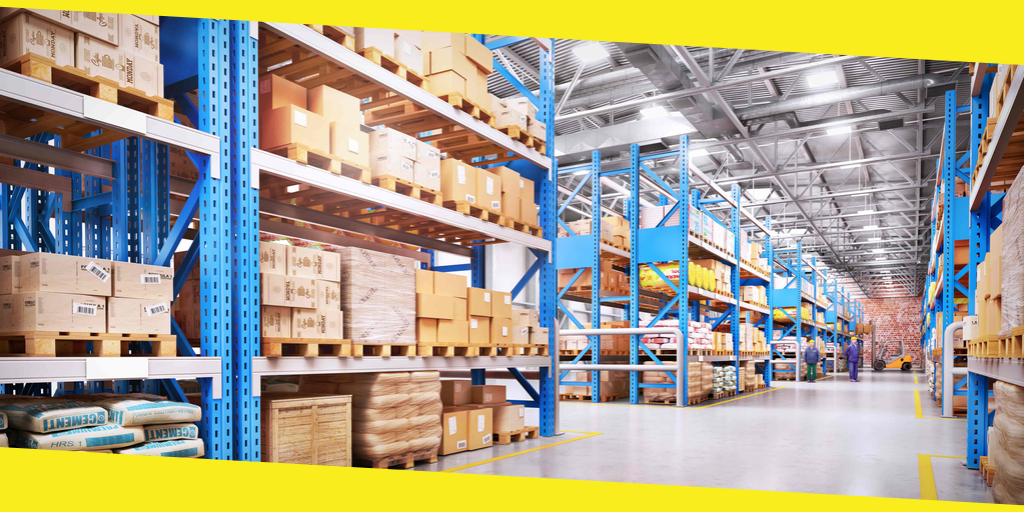Stay Safe From The 4 Warehouses Accidents With These Tips

Regardless of the amount of automation technology you have, employees play a crucial role in your warehouse. Approaches to making the work environment injury-free and keeping all employees safe are the key to a productive and successful warehouse.
However, it can also be a deadly work environment, especially when it involves massive material handling, heavy machines, and other warehouse logistics.
Warehouse accidents involve fatalities to general injuries related to docks, forklifts and conveyors, slips, trips, collisions, and pallet rack collapses and many more hazards.
As a result, lost workforce hours, machine repairs, and damaged stock all eat away at your company’s bottom line. According to the stats, 95 million workers lost workdays every year, which resulted in a massive loss of direct cost, i.e., $38,000 and indirect costs $150,000 to the company.
Thus, it is crucial to throw some light on these common accidents, where it originates from and take a serious approach to improve warehouse safety:
Contents
ToggleForklift-Related Crashes
Whether due to a new operator who takes a wrong turn or an experienced worker who might have off-day, accidents associated with forklifts are common. Operator calls and workplace environment all contribute to forklift-related accidents.
Prevention
While life-threatening situations are bound to occur, employers should ensure that their employees are trained and certified from forklift school that helps minimize risks and focuses on safety.
With regular training, employees become more proactive in identifying hazards. The benefits are incredible from limiting injuries to reducing compensation claims, drive efficiency across all business units.
Pallet Rack Collapses
It is often the result of materials improperly stowed in the pallet racks. Even the smallest and harmless items can become potentially projectile dangers when dropped from a specific height.
Prevention
The ideal way to avoid such collapses is to stack and wrap the racks having heaviest materials at the bottom and lighter at the top. Make sure to perform regular safety inspections for potential dangers. Also, create adequate space between pallet racks to make easy access for forklift operators.
Slips and Trips
It is one of the common concerns in warehousing, like oil spills and gravel might end up on the floor, cartons lying in wrong places, and debris creating obstructions.
Prevention
To avoid this situation endanger you; make sure to keep the aisles clear. Keep the cleaning tools handy to clean oil spills immediately. Illuminate darker areas and place signage near the uneven flooring and the danger-prone regions. Trash unnecessary boxes right after unloading. Also, personnel should be attired appropriately, including shoes, gloves, and jackets.
Manual Handling
It involves injuries resulting from workers attempting to lift heavy objects. It is another most common type of accident after slips and trips. Injuries due to manual handling are primarily associated with the foot, lower back, and shoulders.
Manual material handling, like pallet handling and order picking, leaves workers prone to hazards and injuries. The risk can get higher when an employee handles excess heavy loads.
Prevention
Your first line of defense should be to make sure that your employees have firsthand understanding and a sense of awareness. Do not make employees lift any object that is too heavy, and ensure they are equipped with proper footwear to avoid slips during lifting. Implement an open-door policy that encourages employees to give their feedback if they feel at risk. Train every employee on the floor on proper lifting techniques.
Conclusion
Accidents are sudden, but some are pretty identifiable and happen when workers are hurrying and avoiding safety procedures.
However, establishing a safe environment in logistics operations and train employees rigorously can help to create a safe sound workplace!
You may like this
Recommended For You
Common Exclusions That Your D&O Insurance Will Not Cover
Most Inside
Most Inside offers high-quality recommendations and valuable updates to enhance all aspects of your life, providing premium guidance and enriching experiences.




